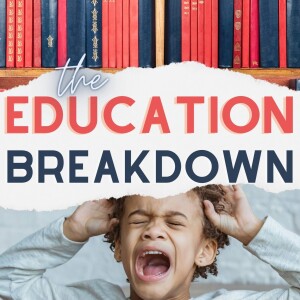
Friday Dec 06, 2024
38. Game On! How Game-Based Learning Transforms Classrooms
In this episode, we dive into the dynamic world of game-based learning with longtime educator Meg Stone. With experience spanning public schools, gifted education, and hybrid learning, Meg brings a unique perspective on how games can transform the classroom into a vibrant, engaging, and highly effective learning environment.
What you’ll learn in this episode:
- What is game-based learning?
Discover how this approach goes beyond traditional teaching methods by making learning interactive, fun, and deeply immersive. - Why games work in education:
- Students learn by doing, which enhances retention and understanding
- The fun and engaging nature of games motivates students to actively participate
- Games build connections between academic concepts and real-world applications
- The hidden benefits of game-based learning:
- Develops soft skills such as:
- Collaboration
- Communication
- Frustration tolerance
- Turn-taking
- Prepares students for life by teaching skills beyond academics
- Develops soft skills such as:
Games mentioned:
- KEVA Planks: This is not exactly a “game,” but it still falls under the “play-based” category. Useful for ANY age. Simple wooden planks that are used to build a multitude of things (truly endless possibilities). Can start very basic and can get VERY complex. Might consider it more of a STEM tool than a game. Corresponding Brain Builders cards add a fantastic layer of complexity, examine a 2-D blueprint and build the corresponding 3-D structure. Other products like Mind Mover Puzzles completely change the way you can use the planks.
- Concept for Kids: This is a board game where players secretly select an animal and then give clues from a set of options to try to get other players to guess their animal. This kind of game helps develop lots of skills because the clue-giver has to think not only about what information is true about their animal, but also what information will be USEFUL to the guessers. So they’re not only trying to communicate the information, but they’re also taking the perspective of the other person.
- Visual discrimination/dexterity, visual problem solving, pattern recognition games: SET, On the Dot, Qwirkle, Q-Bitz, (Swish)
- For older kids who are fluent readers, I LOVE logic puzzles. My favorite style is referred to as “logic puzzles with a grid.” I also enjoy using clue-based games, like cold-case files (murder mysteries). There’s a great board game I started using recently called Ghosted.
No comments yet. Be the first to say something!